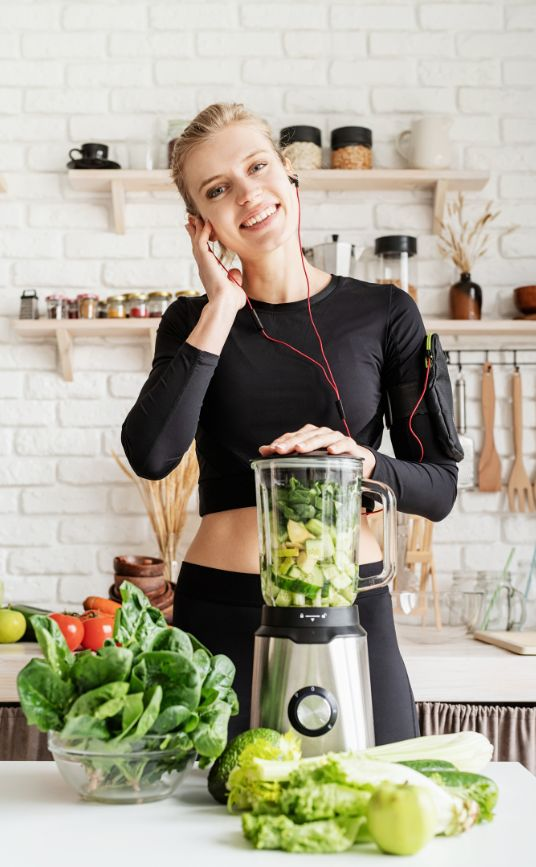Your grandmother probably used borax to clean around the house, and she swears it is safe. It technically is natural as compared to many of the chemical cleaners out there, but is it really safe?
Despite being used in countless homemade cleaner recipes, borax is still a hot topic, and its safety continues to be questioned. With that being said, it’s time to take a closer look at what borax is and just how safe it can be for cleaning.
What is Borax?
Borax can also be known as sodium borate and is a salt of boric acid. It’s important to note that borax is not the same as boric acid due to having very different chemical structures.
You have likely seen articles on the internet about the dangers of boric acid and assume it’s the same as borax or sodium borate, but this isn’t true. The two compounds may be chemically different, but the question is still out as to whether or not one version, borax, is safe.
The latest concern over using borax as a cleaning agent is having it around children and pets. As a common and popular ingredient in homemade and natural cleaners, borax can be found on numerous surfaces in any home. With pets and children licking, lying on, and touching these surfaces frequently, their exposure to borax serves to be a concern. Even with careful supervision, there is still a chance of harm.

So what’s the difference between borax, sodium borate, and boric acid? They are all used in natural pesticides, which are likely the reason they are often confused and assumed to be the same.
Boric acid is much more toxic than sodium borate (borax). Borax is a natural mineral that is used to make boric acid, but occurring naturally in the world does not automatically mean safe for human use.
Safety Hazards and the Precautions You Can Take
Borax is very alkaline, which can cause irritation when used in an undiluted form. Contact with eyes can cause burning, itching, blurred vision, and even corneal injury. Contact with the skin can also cause irritation and possible rashes.
It, therefore, goes without saying that borax should not be used in beauty products or anything that will have regular contact with eyes and skin. It should also never be ingested.
What about more indirect contact, such as through cleaning agents? According to its data sheet, borax is given the same safety rating as baking soda and salt. This makes it seem relatively harmless. All packaging comes with strict warning and precautions about contact with eyes and prolonged exposure to skin.

The Benefits of Cleaning with Borax
Cleaning with borax is safe, as long as you use it responsibly. It’s important to understand that borax is not the same as boric acid, which is the more dangerous compound.
Using borax in a well-ventilated area with gloves, and keeping it away from children is essential. Then you can enjoy the many benefits of having borax around the house.
♦ Boost the cleaning power of your carpet cleaning machine by adding a borax and water mixture to it.
♦ Sprinkle some around your fruit trees to enhance cell wall growth and seed development.
♦ Get rid of pests by mixing borax with sugar and sprinkling in areas of the home where pests have been spotted.
♦ Get cleaner laundry by adding borax to the laundry soap or making your own soap. Be sure that nobody in the home has an allergy to boron or borax before using it this way.

♦ Clean and disinfect your toilet bowl naturally with homemade borax cleaner.
♦ Keep your fridge fresh by washing it out each month using a water and borax mixture. You get a cleaner fridge and one that will stay free of odors.
♦ Clean your car upholstery, especially floor mats. Borax and water make a cheap and efficient cleaner and deodorizer for your car. This is especially effective if you travel with pets in the car.
♦ Remove rust with a mixture of borax, lemon juice, and water. By making a paste, you can apply this to rusted areas and scrub until it is rust-free.
♦ Prevent your humidifier from getting stinky by dissolving borax in water and running it through the humidifier for about 15 minutes.
♦ Clean your outdoor patio furniture, which gets dirty and rusty as a result of weather exposure. With a water and borax mixture in a spray bottle, you have the perfect cleaner to keep your outdoor living spaces fresh and new.
♦ Sanitize your garbage disposal by sprinkling borax down the drain. Let it sit for an hour and drain well with warm water to freshen the disposal area.
♦ Borax can soak up sweat and urine from mattresses and deodorizes them too. Dampen the surface where the stain is, rub the borax in and then let dry before vacuuming away the dried powder. You can also freshen linens by soaking them in borax before rinsing and running through the laundry.

♦ Keep your trash can from getting smelly by sprinkling borax into the bottom of the can before adding the trash bag.
♦ Get rid of fleas that may be on pet beds and carpets by sprinkling borax where you suspect fleas to be. Let it sit for an hour and then vacuum.
Waking Up To Wellness
The bottom line is that borax is a natural cleaner that is safer for use over most conventional cleaners. So long as care is taken not to get it in the eyes or to ingest it, then as a cleaner, it’s safe for use around the house.
If there are surfaces that children have easy access too, then you may want to wipe these down after cleaning with borax to remove any excess from the surface. Be cautious when using borax, but by no means do you need to avoid it altogether.









